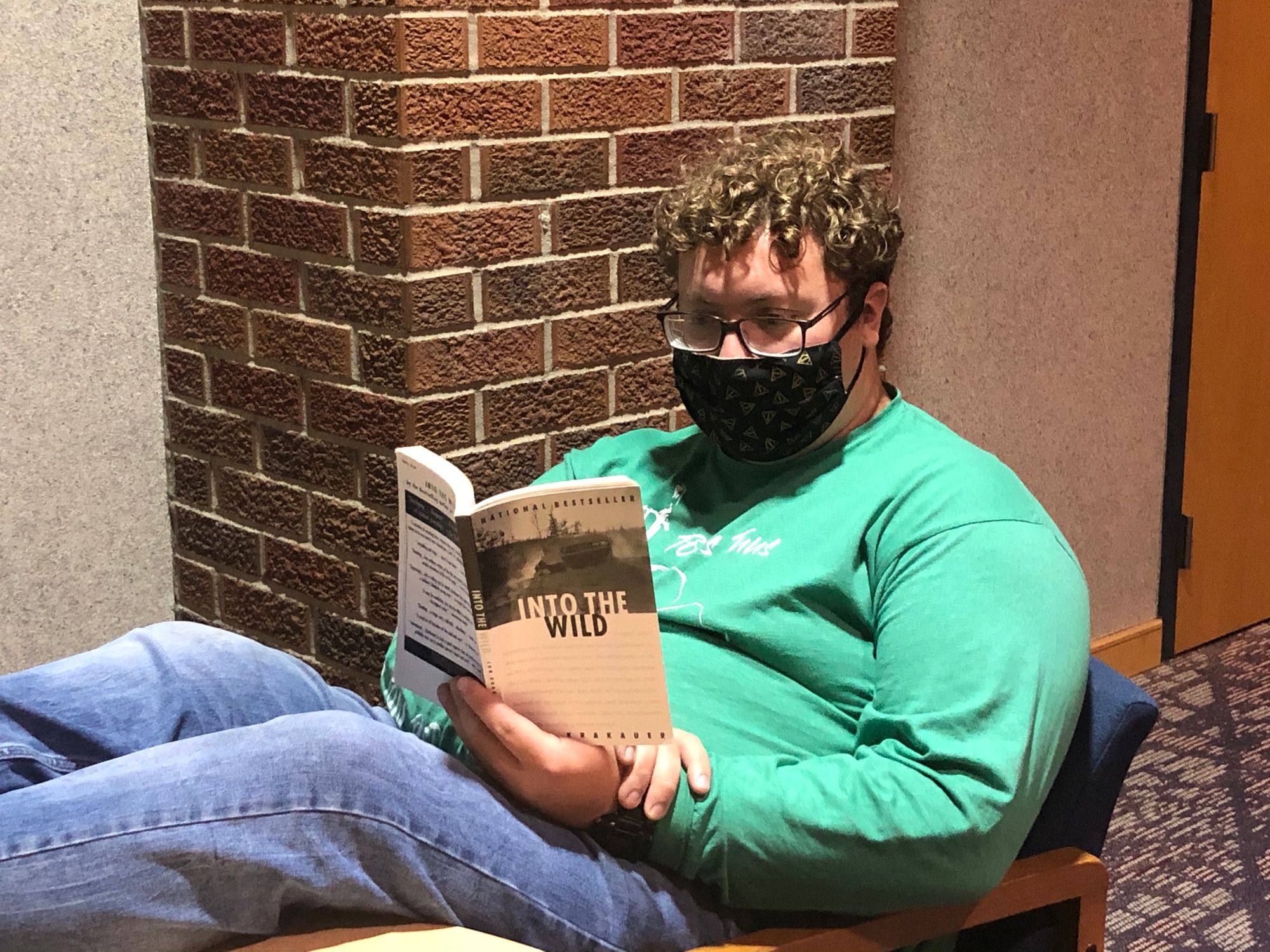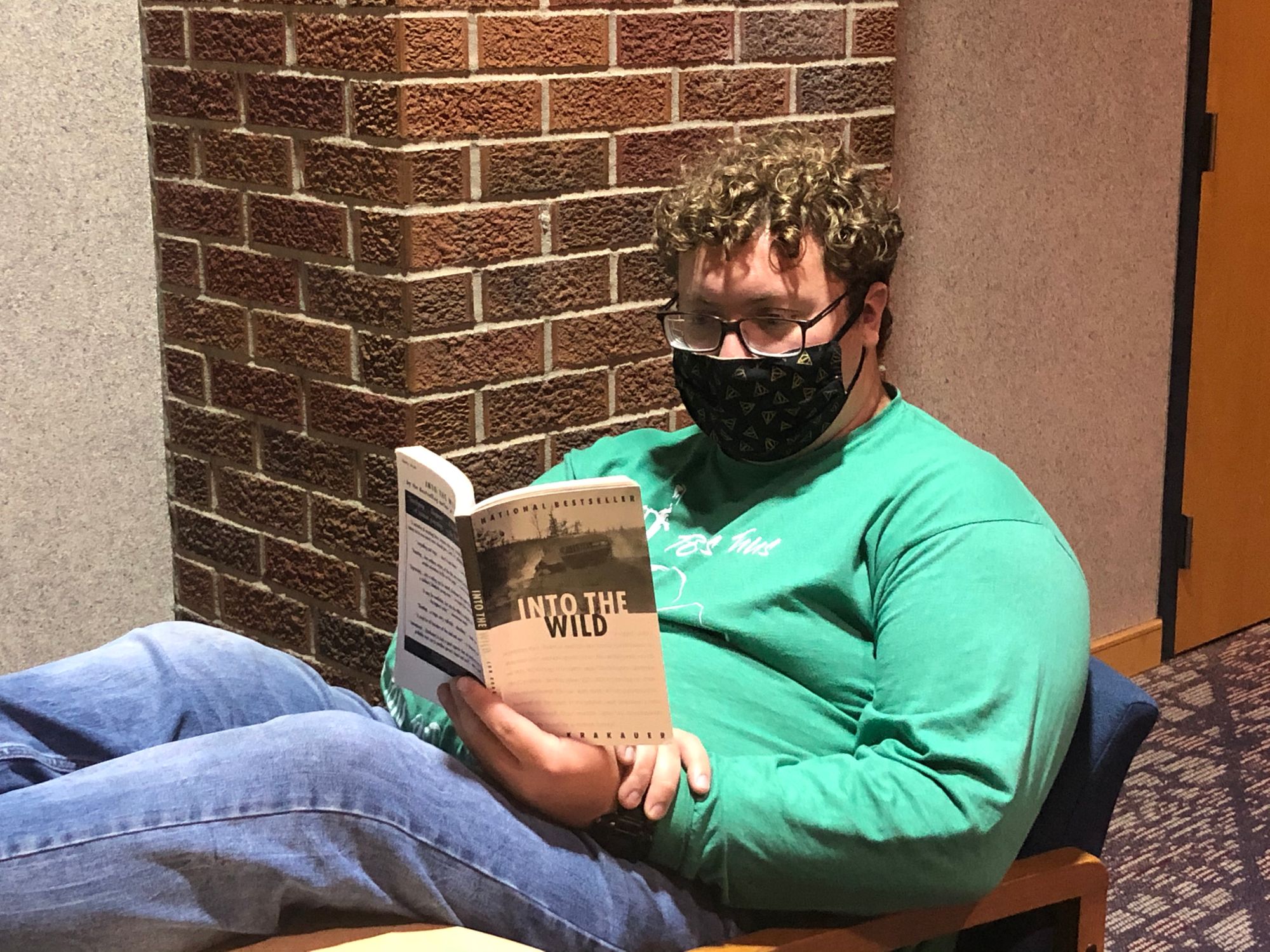By Cole Schnieders, Copy Editor

Over the last couple weeks, I’ve been revisiting John Krakauer’s 1997 book “Into the Wild,” a memoir of Christopher McCandless, or as he called himself, Alexander Supertramp. It was one of those books I was forced to read in high school but couldn’t help picking up again as I started to feel trapped by the grinding cycle of school and work.
“Into the Wild'' plots McCandless’ journeys from his well-to-do family in Virginia to wandering the deserts of the American Southwest after his high school graduation. It also follows his final journey after college, hitchhiking up and down the Pacific coast, then to North Dakota, ending with his death a year after graduation, 24 years old and emaciated in an abandoned bus in the Alaskan wilderness.
Krakauer balances quotes from strangers citing McCandless’s sharp wit and his tendency to either scorn the company of others or be the life of the party. These strangers range from people who gave him a lift to people who thought of him as a son. All of them remember McCandless fondly but can’t understand why he abandoned his family and promising career to become a vagrant.
The notes left by McCandless in his last hundred days as well as highlighted passages and remembered conversations paint him as hating the injustice of the world and being enchanted by nature. These and passages from authors like Henry Thorough and Jack London make up epigraphs for each chapter, comparing McCandless’s ideals to great American authors of the frontier.
Krakaeur uses the book to partially apologize for the first article he wrote about McCandless, which readers took as an excuse to make assumptions about him, calling him a naive dreamer and an arrogant, heartless fool. He also uses it to apologize for his younger self who stubbornly rejected his own family and would often leave behind everything for the sake of adventure, feeling in his freedom “[a] world...suddenly rich with possibility.”
The book leaves it up to the reader to decide if McCandless was an idealistic fool or a hero and if his death was his fault or bad luck.
When I first read the book in high school, McCandless’s story entranced me. I understood, to some degree, wanting to step off into the wild and not look back. But now as a senior in college, I have to wonder where the McCandless is in me. I’ve done maybe four reckless things in my life, but almost everything I do is calculated. I’m working constantly, worried about life after school, trying to build up a resume that’ll set me apart and a nest egg in case there aren’t any jobs.
At what point do I take a risk and step off “into the wilderness?” And if I’m brave enough to do so, will I be a fool, a hero or happy? This is the challenge posed by McCandless, his last message scrawled in capital, block letters to the world before he succumbed to starvation: “I HAVE HAD A HAPPY LIFE AND THANK THE LORD. GOODBYE AND MAY GOD BLESS ALL.” “Into the Wild” can be bought through most book retailers and is frequently reprinted. The book was also adapted into the 2007 film of the same name by writer and director Sean Penn.
PHOTO: Murphy Obershaw, A&E Editor
